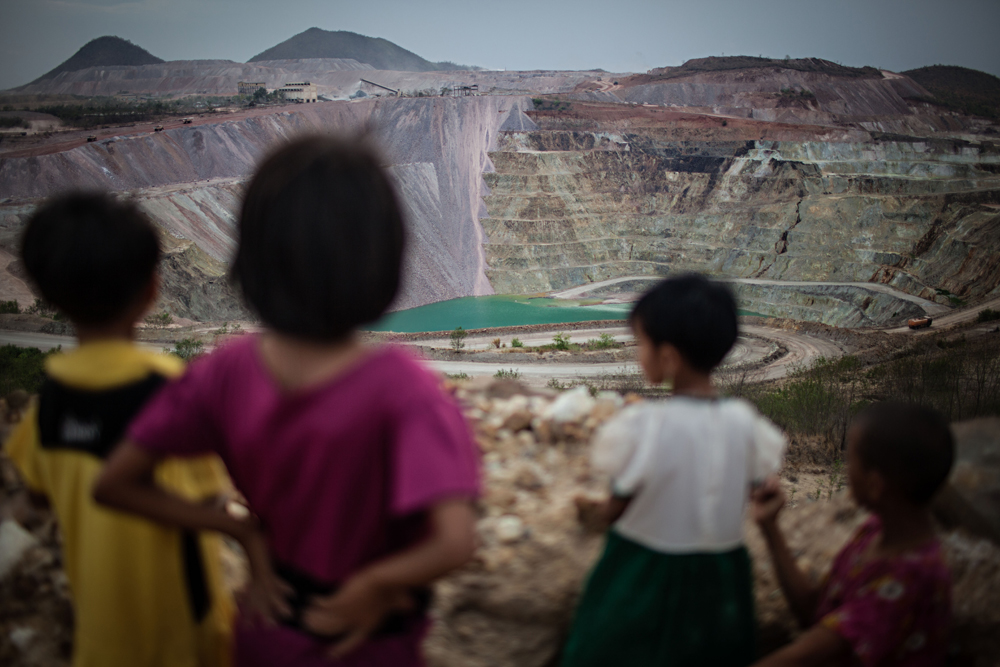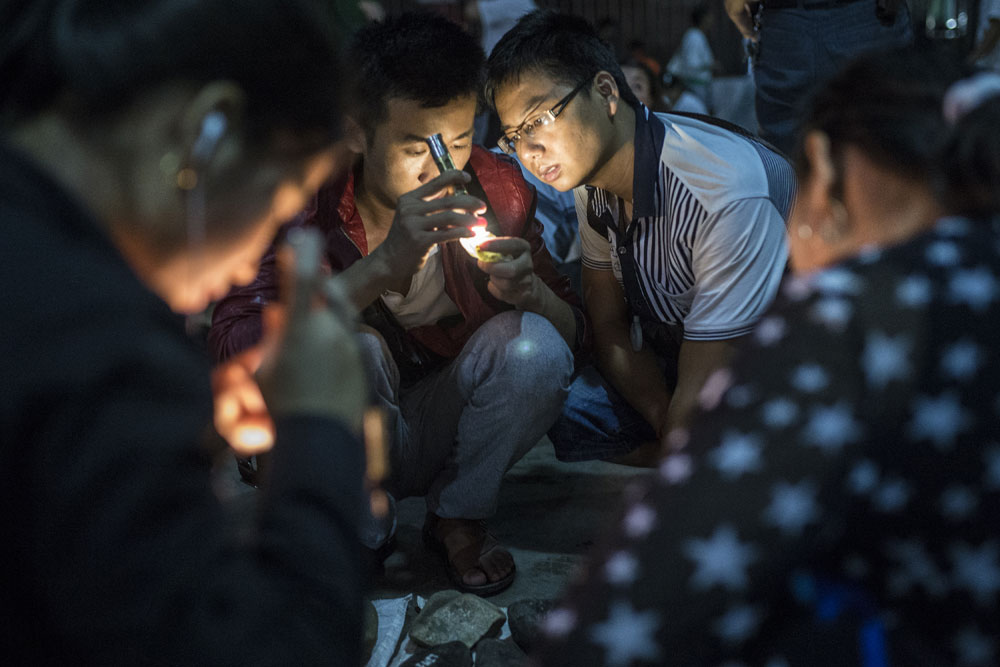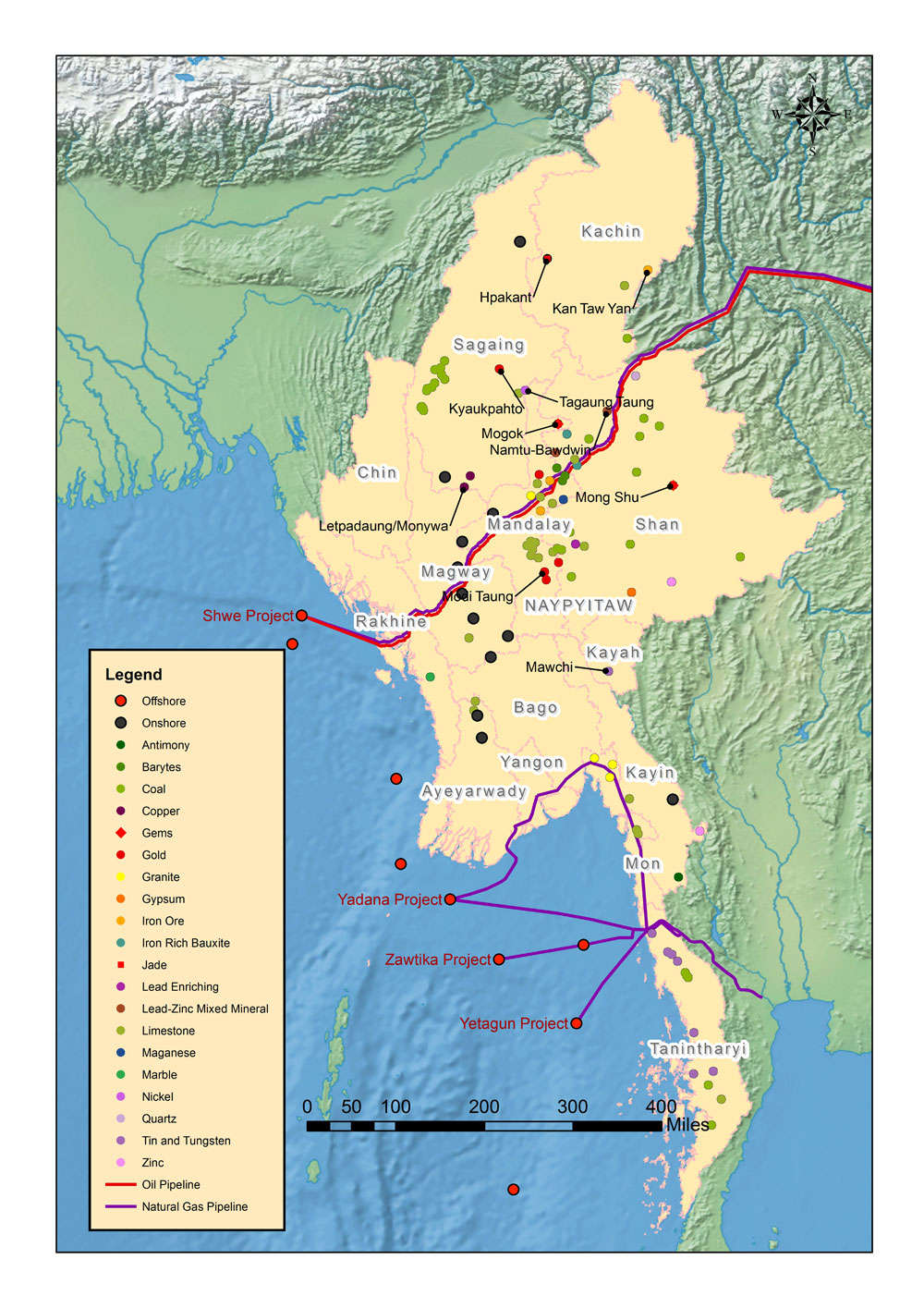
Sharing the Wealth: A Roadmap for Distributing Myanmar's Natural Resource Revenues
Myanmar's Union government collects much of the trillions of kyat generated by oil, gas, gemstones and other minerals each year, primarily through its state-owned economic enterprises (SEEs).
In the face of such centralized control over revenue, many ethnic groups have long asserted their right to make decisions over resource management in their states. Combatants in areas of active conflict and leaders from several ethnic minority parties—particularly those associated with Kachin, Rakhine and Shan states—have openly called for greater resource revenue sharing. (See map below for more on Myanmar’s extractive geography.)
In response, the newly elected National League for Democracy (NLD) has committed to "work to ensure a fair distribution across the country of the profits from natural resource extraction, in accordance with the principles of a federal union." As such, a resource revenue sharing system will undoubtedly be on the table in the upcoming discussion on federalism.
However, as we have seen in other countries, these systems come with considerable risks. In the most extreme cases, such as Peru, they can actually exacerbate conflict, encouraging local leaders to use violence to compel greater transfers from the central government or gain control over mine sites. While these experiences are atypical, natural resource revenue sharing often leads to financial waste, local inflation, boom-bust cycles and poor public investment decisions.

Young children of freelance miners gaze out at Myanmar's expansive Letpadaung copper mine in Sagaing region. Photo by Lauren DeCicca for NRGI
However, if well designed, resource revenue sharing can: improve development outcomes and the quality of public investment; attract high quality private investors to the sector; and help secure a lasting peace. Sharing the Wealth: A Roadmap for Distributing Myanmar's Natural Resource Revenues outlines options available under the current legal structure to help the new leadership fulfill its commitment to decentralize natural resource revenues. It is also meant to inform Myanmar's broader discourse on how best to distribute these revenues.

Traders examine a piece of jade from Kachin state at an open-air market in the Chinese town of Yin Jiang, near the Myanmar border. Photo by Minzayar for NRGI
First, it outlines the current state of fiscal decentralization in Myanmar. Second, it describes the size and location of extractive activities given the limited information currently available. Third, it aims to share good practices for revenue distribution and international experiences. Fourth, it outlines policy options and considerations for policymakers on intergovernmental transfers and addresses the debate on tax assignments."

Here, you can download:
- The full report
- Executive summary
- Principles for non-renewable resource revenue transfers
- Bolivia case study
- Mongolia case study
- Philippines case study

Rubies and sapphires are mainly produced in Mandalay region and Shan state. Photo by Andrew Bauer for NRGI

